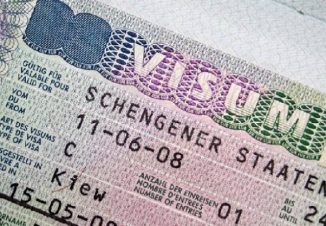
1. GUIDANCE
1.1 Has any guidance been issued on how UK nationals can obtain settled residence status and permission to work from 1 January 2021 and what proof of residence is needed for current residents to maintain their status?
As far as the residence status of UK nationals in Slovenia is concerned, as of 1 January 2021 the EU-UK Trade and cooperation agreement (the ‘Agreement’) applies. The Agreement also regulates residence rights and the issue of new residence permits.
The Agreement does not apply to UK citizens residing in Slovenia as posted workers on the date of expiry of the transitional period. If they wish to continue to reside in Slovenia as posted workers, they should apply for a single permit for posted workers which is issued to third-country nationals who are posted to Slovenia for a limited period of time for the purpose of providing cross-border services or training in a company in the Republic of Slovenia.
A UK citizen and his or her family member who is not an EU citizen residing in Slovenia on the day of expiry of the transitional period on the basis of a valid residence registration certificate for an EU citizen, a residence permit for a family member of an EU citizen or a temporary residence permit for a family member of an EU citizen, and who continued to reside in Slovenia after the expiry of the transitional period, must submit an application for a temporary residence permit (issued on the basis of the Agreement) no later than 31 December 2021, or before the expiry of the certificate or permit, if it expires earlier.
A UK citizen and his or her family member who is not an EU citizen who resided in Slovenia on 31 December 2020 during the permitted 90-day stay from entry into the country and wishes to reside in Slovenia for more than 90 days must apply for temporary residence permits under the Agreement before the expiry of the permitted 90-day residence.
A UK citizen and his or her family member who is not an EU citizen residing in Slovenia on 31 December 2020 on the basis of a valid certificate of registration of permanent residence for an EU citizen, a permanent residence permit for an EU citizen or a permanent residence permit for a family member of an EU citizen must apply for a replacement of the certificate or residence permit within one year of the end of the transitional period, i.e. no later than 31 December 2021 or before the expiry of the validity of the certificate or permanent residence permit, if it expires earlier. This is issued on the basis of the Agreement.
The conditions for issuing a temporary residence permit and a permanent residence permit are the same as those laid down in EU rules on free movement with regard to residence rights. An UK citizen and his or her family member who is not an EU citizen must meet the same conditions as s/he had to fulfil in order to be issued a valid certificate or residence permit in Slovenia.
A UK citizen who initiated the procedure for issuing or renewing a residence registration certificate for an EU citizen or a permanent residence registration certificate for an EU citizen before the end of the transitional period and in which no final decision was made by the end of the transitional period will be able to continue and finalise the procedure under the provisions of the Slovenian Foreigners Act applicable to EU citizens. If the conditions for issuing the certificate are met, the UK citizen obtains a temporary residence permit or a permanent residence permit under the Agreement. The same applies to the applications of family members of a UK citizen.
On the other hand, UK citizens and their family members who are not EU citizens who enter Slovenia for the first time for the purpose of residence from 1 January 2021 onwards will be subject to provisions of the Slovenian Foreigners Act regulating entry, residence and departure for third-country nationals and their family members.
Access to the labour market is not regulated by the Agreement, meaning UK citizens who enter Slovenia for the purpose of working for a Slovenian employer may need a single residence and work permit.
2. BUSINESS TRAVEL
2.1 Do UK employees need a business visa from 1 January 2021?
No visa is currently required for UK citizens to enter Slovenia after 1 January 2021.
2.2 What documents are needed on arrival for business travel from 1 January 2021?
Valid passport.
2.3 Do UK nationals need additional permission to work for business travel from 1 January 2021 in the event of no deal?
If a UK citizen will be performing work in Slovenia, an appropriate permission (Single Permit or EU Blue Card) will in principle be required. However, the Agreement provides for some exceptions to that.
3. EMPLOYMENT AND RESIDENCE
3.1 Do UK nationals need permission to work and stay in Slovenia from 1 January 2021?
An appropriate permission (Single Permit or EU Blue Card) will be needed for a UK citizen to work and stay in Slovenia, unless the UK citizen can rely on the exemptions under the Employment, Self-Employment and Work of Foreigners Act, such as:
3.2 If permission to work is needed after 1 January 2021, do any quotas apply to the employment of third-country nationals?
Yes, the government may determine a quota yearly under the Employment, Self-Employment and Work of Foreigners Act. There is currently no quota established for 2021.
3.3 If permission to work is needed from 1 January 2021, what categories of permission are commonly granted?
• special category of highly qualified employees;
3.4 If permission to work or stay is needed from 1 January 2021, how long does the procedure take?
The procedure for a Single Permit or EU Blue Card takes up to two months from the date the complete application is submitted. For the application to be complete, all relevant documentation has to be provided with the application (evidence of the absence of a criminal record, appropriate health insurance and sufficient means of subsistence while living in the country, executed employment contract with the employer, photograph of the employee, proof of relevant education, etc.).
Sufficient preparation time for gathering this documentation should be factored into employment plans.
3.5 If permission to work and stay is needed from 1 January 2021, what Government fees are payable?
A Government fee of EUR 74.50 is payable for a Single Permit (EUR 4.50 for the application and EUR 70 for the permit). Additionally, EUR 12 has to be paid for the issue of a residence card.
4. FRONTIER WORKERS
4.1 What formalities apply to UK frontier workers working in Slovenia but living in another country from 1 January 2021?
As of 1 January 2021 the relevant Slovenian provisions regulating work of third-country nationals apply to UK citizens. Frontier workers will also be regarded as employees from a third country and will therefore require an appropriate permission to work in Slovenia.
5. PERMANENT RESIDENCE
5.1 From what date are third-country nationals entitled to apply for permanent residence?
At least five years of continuous legal stay (residence) in Slovenia on the basis of a temporary residence permit or on the basis of confirmation of a submitted request for the extension of a residence permit or a subsequent temporary residence permit, subject to further conditions.
The condition of continuous stay is fulfilled if there is an absence of less than six consecutive months and if the absence does not exceed ten months over a five-year period in total.
In special cases, permanent residence may be obtained before five years of continuous legal stay in Slovenia (subject to further conditions).
6. SECURING RESIDENCE AND WORK STATUS
6.1 What steps could UK nationals take currently to secure their residence and work status?
For UK citizens residing in Slovenia on the day of expiry of the transitional period, please see 1 above.
Currently (in the absence of any specific contingency rules):
